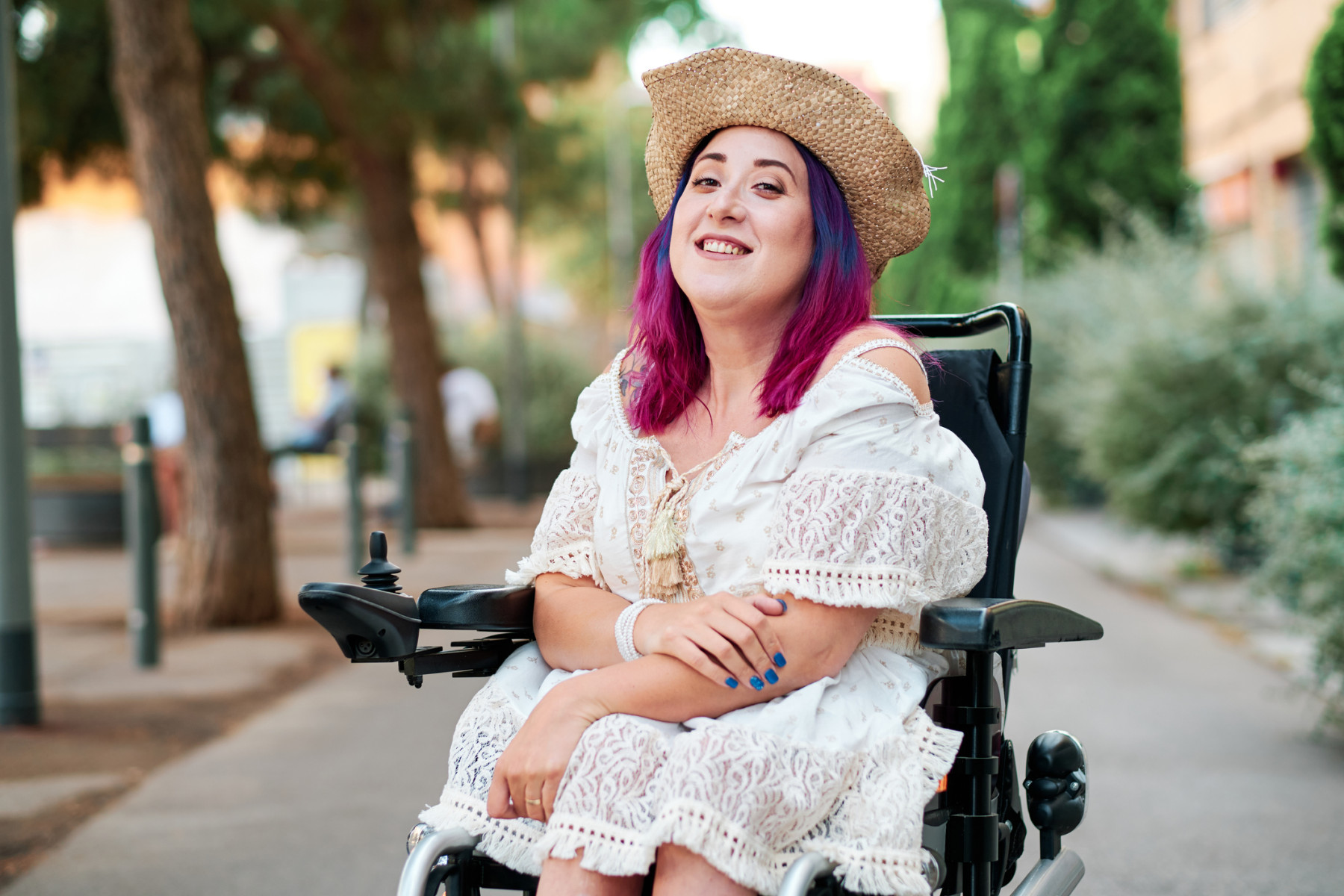What Can NDIS Funds Be Used For?
22 September, 2023
The National Disability Insurance Scheme (NDIS) provides much-needed supports and services to people with disabilities. However, it can also be a challenging and confusing organisation to deal with. If you're wondering to yourself, "what can NDIS funds be used for?" don't worry, you're not alone!
That's why, in this comprehensive guide, we will delve into the various aspects of NDIS funding, its core principles, and what supports and services it does and does not cover.
If you want to learn more about the NDIS more generally, you can also check out our comprehensive NDIS guide.

NDIS Funding Is Based On Your Goals
Once your NDIS plan is approved, you'll have the opportunity to set goals tailored to your unique needs and aspirations. These goals vary from person to person and are influenced by individual characteristics, the nature of the disability, and the level of independence one aims to achieve.
If you'd like to learn more about how NDIS plans work, check out our blog that helps you to break down your NDIS plan.
Supports Must Be "Reasonable And Necessary"
Once you've established your goals, the next step involves determining how your NDIS funds can be used to support your efforts in achieving these objectives.
The NDIS uses a set of criteria to determine whether a support or service is "reasonable and necessary." These criteria are essential in guiding funding decisions to ensure that NDIS funds are allocated effectively and efficiently. When assessing the reasonableness and necessity of a disability support amount, the following factors are considered:
1. Related to Disability
The support must be related to the participant's disability. It should directly address the impact of the disability on the individual's functional capacity, independence, and quality of life.
2. Support Reduces Disability Related Barriers
The NDIS takes into account the functional impact of the disability on the participant's life. Supports are assessed based on how they can help overcome specific challenges and barriers posed by the disability and the way they can increase social and economic participation.
3. Value for Money
The support must represent value for money. This means that the cost of the support should be reasonable given the benefits it provides in terms of achieving the participant's goals and improving their health and wellbeing.
4. Effective
The support should be likely to achieve the desired outcomes. It must have a reasonable chance of making a positive difference in the participant's life, whether it's in terms of increased independence, improved social participation, enhanced wellbeing, or other goals.
5. Evidence-Based
Whenever possible, the NDIS prefers to pay for supports and services that are evidence-based. This means that the effectiveness of the support should be supported by research or best practice guidelines.
6. Not Duplicative
The NDIS considers whether the support duplicates services or supports that are available through other systems, such as the health system or education system. NDIS funding is intended to fill gaps and provide supports that are not otherwise covered.
7. Complements Informal Supports
The support is needed to complement the informal supports you already have from family, friends, carers, informal networks and the community.
What Won't The NDIS Fund?
While The NDIS provides funding for a wide range of supports and services to assist individuals with disabilities, there are certain types of supports that the NDIS typically does not cover. It's important to understand these limitations to avoid misconceptions about what can be be funded by the NDIS. Here are some common categories of supports that the NDIS may not cover:
1. Supports Not Related to Disability
The NDIS does not cover supports that are unrelated to the participant's disability. For example, it won't cover services like gardening, house cleaning, or home maintenance unless these services are required due to the participant's disability-related needs.
2. Mainstream Health Services
The NDIS does not fund services that are the responsibility of mainstream health systems, such Medicare.
3. Educational Expenses
Educational expenses, such as tuition fees for mainstream schools or universities, are typically not covered by the NDIS. However, the NDIS can provide support for specific disability-related educational needs and aids, like assistive technology, additional tutoring, or specialized support in a school setting.
4. Day-to-Day Living Expenses
NDIS funds are not intended to cover day-to-day living expenses that are unrelated to disability, such as groceries, utility bills, rent or mortgage payments, and other general living costs. Participants are expected to use other sources of income for these expenses.
5. Legal Expenses and Fines
The NDIS does not cover legal expenses or fines incurred by participants, regardless of whether they are related to disability.
6. Luxury Items or Services
NDIS funding is focused on providing reasonable and necessary supports, which means it generally does not fund luxury items or services that go beyond what is essential to meet and maintain the participant's goals and needs.
7. Supports Not Aligned with NDIS Plan
Supports and services that are not aligned with the participant's NDIS plan, goals, or stated needs are not eligible for NDIS funding.
8. Supports Predating NDIS Plan Approval
Expenses incurred or services accessed before the NDIS plan is approved are typically not covered by the NDIS. Funding is provided based on the plan's start date.
9. Supports for Non-Participants
The NDIS provides funding for eligible participants, but it does not cover supports for family members or other individuals who are not NDIS participants themselves.

How is your NDIS plan funded?
The NDIS allocates funding according to three main components: the Core Support Budget, the Capacity Building Budget, and the Capital Supports Budget. Each of these budgets serves a specific purpose and is designed to address different aspects of a participant's support needs and goals. Here's how NDIS plans are funded in terms of these three core supports budget categories:
1. Core Supports Budget (Includes Disability Support Worker Assistance)
Purpose: The Core Support Budget is designed to cover the participant's everyday support needs, including assistance with daily living activities, personal care, and community participation.
Funding Allocation: The funding for the Core Support Budget is typically allocated as a fixed amount per support category. Participants have flexibility within these categories to determine how they allocate their funds based on their specific needs and goals.
Support Categories: The Core Support Budget includes categories such as Assistance with Daily Living provided by a support worker, Transport, Consumables, and Assistance with Social and Community Participation that can also be provided by support workers.
Flexibility: Participants can move funds between categories within the Core Support Budget to best meet their individual needs. For example, if someone needs more support with transportation and less with social participation, they can adjust their allocations accordingly and alter the supports delivered.
2. Capacity Building Budget
Purpose: This budget is designed to fund supports and services that focus on skill development, goal achievement, and enhancing the participant's independence and inclusion in the community.
Funding Allocation: The Capacity Building Budget is also allocated based on specific support categories, such as Improved Daily Living, Improved Relationships, and Improved Learning. Participants can determine how to use these funds to work towards their goals.
Support Categories: Within this category, there are other supports, each intended to address specific aspects of capacity building. For example, Improved Daily Living may cover therapies like occupational therapy or behaviour support.
Goal-Oriented: The Capacity Building Budget is particularly goal-oriented, and participants are encouraged to work with their support coordinator or planner to identify which supports will help them achieve their individual goals.
3. Capital Supports Budget
Purpose: The Capital Supports Budget is intended for larger and more significant investments in alternative supports or home modifications that improve the participant's long-term living situation or accessibility.
Funding Allocation: The Capital Supports Budget is generally allocated as a lump sum, rather than divided into specific categories. This allows participants to allocate funds as needed for capital expenditures or other supports.
Examples: The Capital Supports Budget may cover items such as assistive technology, home modifications (e.g., ramps or accessible bathrooms), wheelchairs, vehicle modifications, or funding for Specialist Disability Accommodation (SDA) in appropriate cases.
Plan Approval: Participants typically need to have their plan approved by the National Disability Insurance Agency (NDIA) for significant capital expenses, such as home modifications.
How Can Focus Care help?
If you're searching for a registered NDIS service provider that can connect you with a great support worker and can offer you personalised support, Focus Care may be for you. If you want a service provider that offers Support Coordination, assistance with daily life, creative therapies, and more, contact us today.




